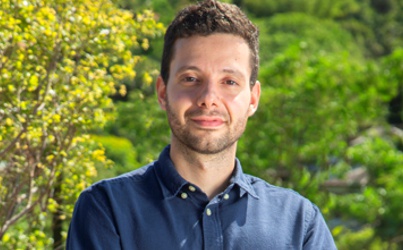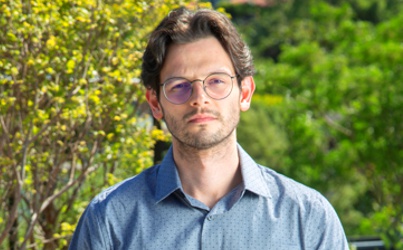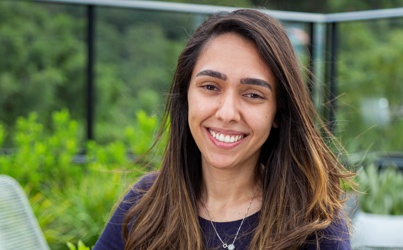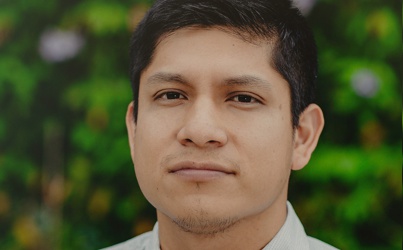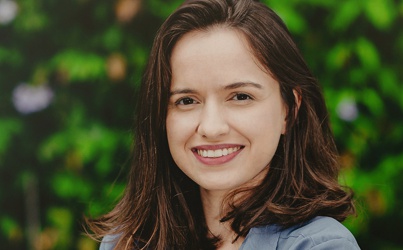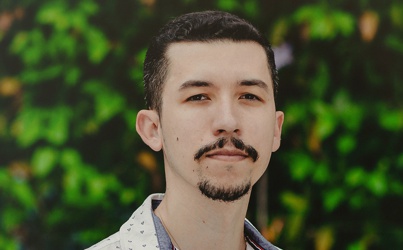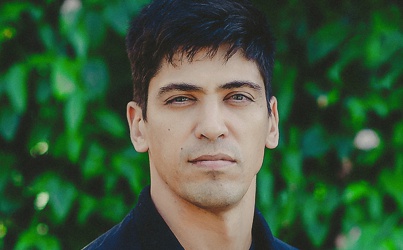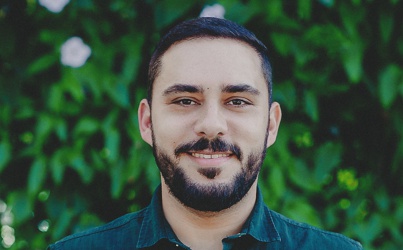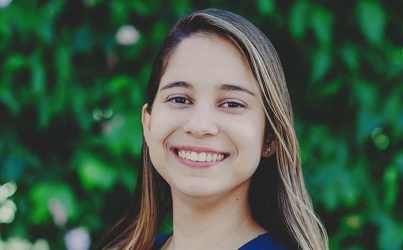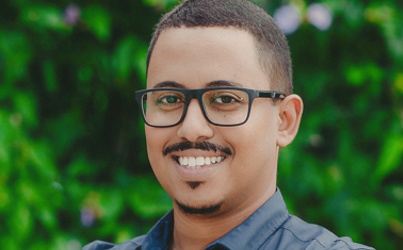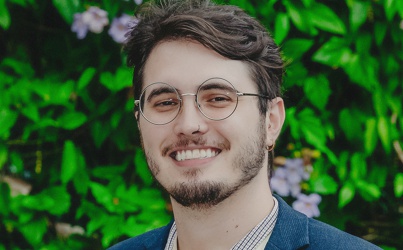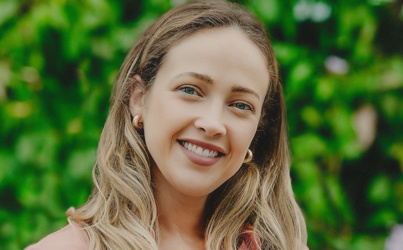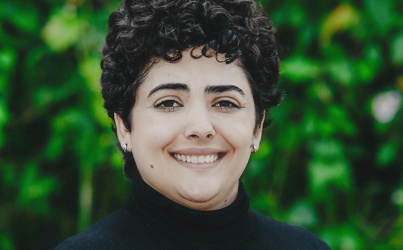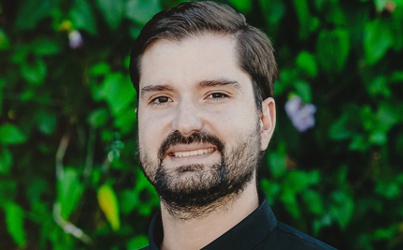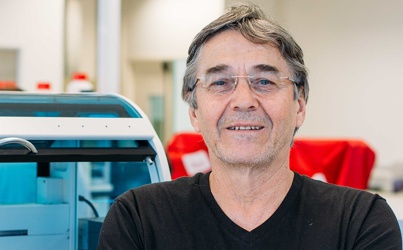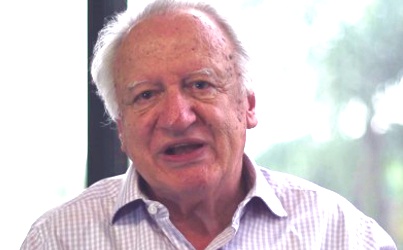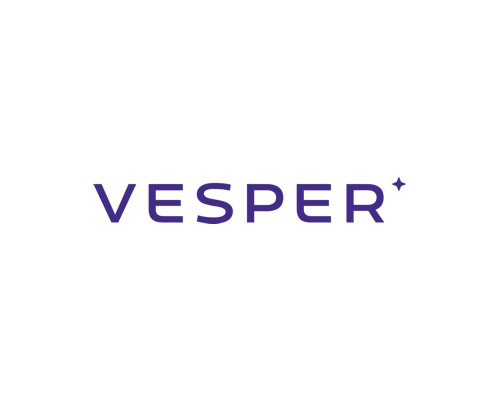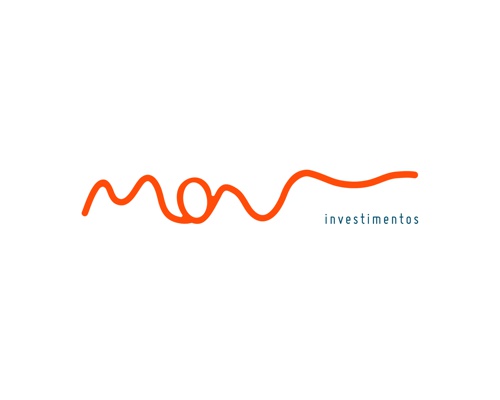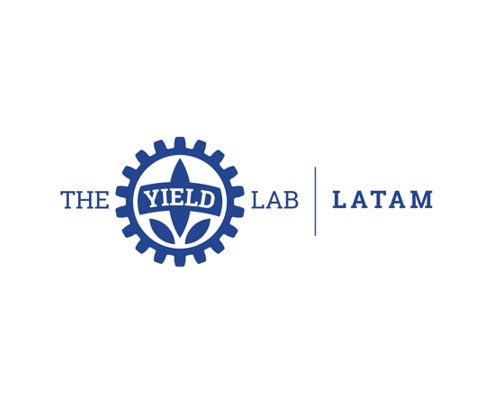Symbiomics brings together a team with expertise and experiences in different areas, self-assemble around solving big problems.
Rafael has a Ph.D in Molecular Biology, Genetics and Bioinformatics from the University of Campinas (Unicamp). His Ph.D was focused on unraveling the microbial community associated with sugarcane and its potential for increasing crop sustainability, a work developed as member of the Saccharome Project, a joint partnership between the Polytechnic University of Madrid (UPM) and Unicamp. He was leader of the Plant Microbiome team at the Genomics for Climate Change Research Center (GCCRC) with large focus on understanding the dynamics of microbial communities and their impact in plant health and development. He is also part of the MicrobiomeSupport consortium, a network of 26 countries funded by the European Union focused on boosting the bioeconomy using microbiome technologies.
Rafael has a Ph.D in Molecular Biology, Genetics and Bioinformatics from the University of Campinas (Unicamp). His Ph.D was focused on unraveling the microbial community associated with sugarcane and its potential for increasing crop sustainability, a work developed as member of the Saccharome Project, a joint partnership between the Polytechnic University of Madrid (UPM) and Unicamp. He was leader of the Plant Microbiome team at the Genomics for Climate Change Research Center (GCCRC) with large focus on understanding the dynamics of microbial communities and their impact in plant health and development. He is also part of the MicrobiomeSupport consortium, a network of 26 countries funded by the European Union focused on boosting the bioeconomy using microbiome technologies.
Jader has a Ph.D. in Molecular Biology, Genetics and Bioinformatics from the University of Campinas (Unicamp). Developed his Ph.D. as a member of the Saccharome Project, a joint partnership between the Polytechnic University of Madrid (UPM) and Unicamp, in which he performed his work on developing disruptive methods for the large-scale isolation and identification of microorganisms associated with plants, as well as tools for the investigation of the impact of microbial communities on plant responses to environmental stresses. At the Genomics for Climate Change Research Center (GCCRC), at Unicamp, he has overseen the creation of a pipeline for microbial culture collections and proof of concepts experiments for investigating the impact of beneficial microbes in plant physiology.
Jader has a Ph.D. in Molecular Biology, Genetics and Bioinformatics from the University of Campinas (Unicamp). Developed his Ph.D. as a member of the Saccharome Project, a joint partnership between the Polytechnic University of Madrid (UPM) and Unicamp, in which he performed his work on developing disruptive methods for the large-scale isolation and identification of microorganisms associated with plants, as well as tools for the investigation of the impact of microbial communities on plant responses to environmental stresses. At the Genomics for Climate Change Research Center (GCCRC), at Unicamp, he has overseen the creation of a pipeline for microbial culture collections and proof of concepts experiments for investigating the impact of beneficial microbes in plant physiology.
Crhisllane Vasconcelos has a Ph.D. in Genetics with an emphasis in Bioinformatics from the Federal University of Pernambuco (UFPE). During her Ph.D. she developed pipelines for genome annotation, differential gene expression, proteome prediction, and protein–protein interaction networks. At the Institute Aggeu Magalhães (IAM/Fiocruz) she participated in several projects applying her knowledge about NGS data analysis, systems biology, molecular dynamics, and machine learning. She worked as a bioinformatics scientist at the Genomics for Climate Change Research Center (GCCRC) at the University of Campinas (Unicamp), where she developed pipelines for analyzing microbiomes, plant–microorganisms interactions, and their impact on plant growth, health, and resilience.
Crhisllane Vasconcelos has a Ph.D. in Genetics with an emphasis in Bioinformatics from the Federal University of Pernambuco (UFPE). During her Ph.D. she developed pipelines for genome annotation, differential gene expression, proteome prediction, and protein–protein interaction networks. At the Institute Aggeu Magalhães (IAM/Fiocruz) she participated in several projects applying her knowledge about NGS data analysis, systems biology, molecular dynamics, and machine learning. She worked as a bioinformatics scientist at the Genomics for Climate Change Research Center (GCCRC) at the University of Campinas (Unicamp), where she developed pipelines for analyzing microbiomes, plant–microorganisms interactions, and their impact on plant growth, health, and resilience.
Mariana has a Ph.D. in Plant Biotechnology from the State University of the North Fluminense Darcy Ribeiro (UENF). During her Ph.D., she investigated the molecular bases that modulate the efficiency of the association between plants and beneficial bacteria and developed a pipeline combining proteomic analysis and large-scale reverse genetics to prospect new genes and metabolic pathways associated with bacterial survival under challenging environments. She worked as a postdoctoral researcher at the Genomics for Climate Change Research Center (GCCRC), at University of Campinas (Unicamp), coordinating the creation of collections of microorganisms, in which she used disruptive methodologies for the isolation and identification of bacteria and fungi associated with plants.
Mariana has a Ph.D. in Plant Biotechnology from the State University of the North Fluminense Darcy Ribeiro (UENF). During her Ph.D., she investigated the molecular bases that modulate the efficiency of the association between plants and beneficial bacteria and developed a pipeline combining proteomic analysis and large-scale reverse genetics to prospect new genes and metabolic pathways associated with bacterial survival under challenging environments. She worked as a postdoctoral researcher at the Genomics for Climate Change Research Center (GCCRC), at University of Campinas (Unicamp), coordinating the creation of collections of microorganisms, in which she used disruptive methodologies for the isolation and identification of bacteria and fungi associated with plants.
Gabriel has a master’s degree in Genetics and Molecular Biology from University of Campinas (Unicamp) and is currently concluding his Ph.D. by investigating the mechanisms of assembly and functioning of the plant microbiome at the Pluridisciplinary Center for Chemical, Biological and Agricultural Research (Centro Pluridisciplinar de Pesquisas Químicas, Biológicas e Agrícolas, CPQBA). He has developed strategies for the design and construction of microbial consortia based on genomic data and phenotypic traits. He has also participated in taxonomic characterization studies of the microbiome of soybean, maize and passionfruit. Furthermore, he has experience in systematics and bioprospecting of microorganisms associated with plants and soils, characterizing beneficial traits for agricultural systems.
Gabriel has a master’s degree in Genetics and Molecular Biology from University of Campinas (Unicamp) and is currently concluding his Ph.D. by investigating the mechanisms of assembly and functioning of the plant microbiome at the Pluridisciplinary Center for Chemical, Biological and Agricultural Research (Centro Pluridisciplinar de Pesquisas Químicas, Biológicas e Agrícolas, CPQBA). He has developed strategies for the design and construction of microbial consortia based on genomic data and phenotypic traits. He has also participated in taxonomic characterization studies of the microbiome of soybean, maize and passionfruit. Furthermore, he has experience in systematics and bioprospecting of microorganisms associated with plants and soils, characterizing beneficial traits for agricultural systems.
Danyelle is an Agronomist from the Federal University of Viçosa (UFV) and has a master’s degree in Plant Biotechnology from the State University of the North Fluminense Darcy Ribeiro (UENF). During undergraduate, she has worked in the Program of Soybean Quality Genetic Improvement from the Institute of Biotechnology Applied to Agriculture (BIOAGRO-UFV) using several molecular biology methodologies for assisted selection of soybean lines, understanding the expression of genes associated with increasing of oil quantity and quality and protein content, maintaining high levels of productivity. In her master’s studies she has used proteomic analysis to understand defense responses in roots of model plants, and microbiology techniques to study the interaction in vitro between beneficial bacteria and plants.
Danyelle is an Agronomist from the Federal University of Viçosa (UFV) and has a master’s degree in Plant Biotechnology from the State University of the North Fluminense Darcy Ribeiro (UENF). During undergraduate, she has worked in the Program of Soybean Quality Genetic Improvement from the Institute of Biotechnology Applied to Agriculture (BIOAGRO-UFV) using several molecular biology methodologies for assisted selection of soybean lines, understanding the expression of genes associated with increasing of oil quantity and quality and protein content, maintaining high levels of productivity. In her master’s studies she has used proteomic analysis to understand defense responses in roots of model plants, and microbiology techniques to study the interaction in vitro between beneficial bacteria and plants.
Thiago has a Ph.D. in Biochemistry and Molecular Biology from the Federal University of Paraná (UFPR). During his Ph.D., he joined the John Innes Centre (Norwich, UK) as a visiting researcher where he made significant progress towards engineering diazotrophic bacteria strains to be used as more sustainable sources of fixed nitrogen in crops. As a postdoctoral researcher, he further worked with genome editing techniques to enhance the potential of naturally occurring root-associated diazotrophs as plant-growth promoters, aiming to increase yield production in agriculture while helping to lower chemical nitrogen input. Thiago is also part of a network of UK and Brazilian scientists (UK–Brazil Nitrogen Fixation Centre, UBNFC), working together to develop innovative technologies to increase crop productivity using nitrogen-fixing bacteria.
Thiago has a Ph.D. in Biochemistry and Molecular Biology from the Federal University of Paraná (UFPR). During his Ph.D., he joined the John Innes Centre (Norwich, UK) as a visiting researcher where he made significant progress towards engineering diazotrophic bacteria strains to be used as more sustainable sources of fixed nitrogen in crops. As a postdoctoral researcher, he further worked with genome editing techniques to enhance the potential of naturally occurring root-associated diazotrophs as plant-growth promoters, aiming to increase yield production in agriculture while helping to lower chemical nitrogen input. Thiago is also part of a network of UK and Brazilian scientists (UK–Brazil Nitrogen Fixation Centre, UBNFC), working together to develop innovative technologies to increase crop productivity using nitrogen-fixing bacteria.
Fabiano holds a Ph.D. in Genetics and Biotechnology from the Federal University of Juiz de Fora (UFJF), with an emphasis on plant breeding and genome editing. During his Ph.D., he worked at Embrapa Genetic Resources and Biotechnology (Brazil) and CIRAD institute (AFEG – Platform for functional analysis and genome editing) in Montpellier, France. He actively collaborated on the implementation of genome editing pipelines in rice (Oryza sativa L.) and tomato (Solanum lycopersicum L.) crops, aiming to increase resistance to phytopathogens. As a postdoctoral researcher, he was engaged with the execution and supervision of several projects involving genome editing of soybean (Glycine max) crop and optimization of protocols for in vitro plant tissue culture. He has great expertise with pipelines of proteomics and genomics of plant–pathogen interaction.
Fabiano holds a Ph.D. in Genetics and Biotechnology from the Federal University of Juiz de Fora (UFJF), with an emphasis on plant breeding and genome editing. During his Ph.D., he worked at Embrapa Genetic Resources and Biotechnology (Brazil) and CIRAD institute (AFEG – Platform for functional analysis and genome editing) in Montpellier, France. He actively collaborated on the implementation of genome editing pipelines in rice (Oryza sativa L.) and tomato (Solanum lycopersicum L.) crops, aiming to increase resistance to phytopathogens. As a postdoctoral researcher, he was engaged with the execution and supervision of several projects involving genome editing of soybean (Glycine max) crop and optimization of protocols for in vitro plant tissue culture. He has great expertise with pipelines of proteomics and genomics of plant–pathogen interaction.
Helbert is a biologist graduated from Federal University of São João del Rey, and holds a master’s and Ph.D. in Agricultural Microbiology from Federal University of Viçosa (UFV). He has experience in many research approaches of rhizospheric growth promoting fungi and plants, as well as factors that influence such establishment. He has worked in fungal isolation, characterization, molecular identification, tests of potential and mechanisms of plant growth promotion, including inoculation assays of fungal isolates. He also held a position as a postdoctoral researcher at the Population Biology of Plant Pathogens Laboratory of the Department of Plant Pathology at UFV, where he conducted studies of genotypic and phenotypic characterization of pathogens, including detection of mutations related to resistance to fungicides.
Helbert is a biologist graduated from Federal University of São João del Rey, and holds a master’s and Ph.D. in Agricultural Microbiology from Federal University of Viçosa (UFV). He has experience in many research approaches of rhizospheric growth promoting fungi and plants, as well as factors that influence such establishment. He has worked in fungal isolation, characterization, molecular identification, tests of potential and mechanisms of plant growth promotion, including inoculation assays of fungal isolates. He also held a position as a postdoctoral researcher at the Population Biology of Plant Pathogens Laboratory of the Department of Plant Pathology at UFV, where he conducted studies of genotypic and phenotypic characterization of pathogens, including detection of mutations related to resistance to fungicides.
Rafaela Martins has a master’s degree in Health Biosciences and Biotechnology in the area of Basic and Applied Cellular and Molecular Biology from the Institute Aggeu Magalhães (IAM/Fiocruz) and Biomedical from the Federal University of Pernambuco (UFPE). During her academic career, she has worked in the characterization of proteins, using multiple methods of molecular biology. During graduation, she developed tools for protein expression and evaluation, as well as antibody production based on techniques such as mutagenesis, gene cloning, protein induction and expression. In her master’s degree, she evaluated the protein expression profile using tools and techniques previously developed aiming to evaluate post-translational modifications and to compare the expression of isoforms of translation initiation proteins.
Rafaela Martins has a master’s degree in Health Biosciences and Biotechnology in the area of Basic and Applied Cellular and Molecular Biology from the Institute Aggeu Magalhães (IAM/Fiocruz) and Biomedical from the Federal University of Pernambuco (UFPE). During her academic career, she has worked in the characterization of proteins, using multiple methods of molecular biology. During graduation, she developed tools for protein expression and evaluation, as well as antibody production based on techniques such as mutagenesis, gene cloning, protein induction and expression. In her master’s degree, she evaluated the protein expression profile using tools and techniques previously developed aiming to evaluate post-translational modifications and to compare the expression of isoforms of translation initiation proteins.
Francisnei Pedrosa holds a master’s degree and Ph.D. in Biosciences and Biotechnology from the State University of Northern Rio de Janeiro Darcy Ribeiro (UENF). He worked with comparative genomics of environmental and clinical bacteria, using bioinformatics to distinguish different groups of microorganisms with a focus on prospecting for microorganisms of biotechnological interest. He also worked as a postdoctoral researcher in Plant Biotechnology at UENF, developing a web application and a comprehensive database for prospecting microorganisms with potential for promoting plant growth and bioremediation. He has experience with large-scale genomic data analysis, genome assembly, and genomic annotation of microbial communities using multiple programming languages.
Francisnei Pedrosa holds a master’s degree and Ph.D. in Biosciences and Biotechnology from the State University of Northern Rio de Janeiro Darcy Ribeiro (UENF). He worked with comparative genomics of environmental and clinical bacteria, using bioinformatics to distinguish different groups of microorganisms with a focus on prospecting for microorganisms of biotechnological interest. He also worked as a postdoctoral researcher in Plant Biotechnology at UENF, developing a web application and a comprehensive database for prospecting microorganisms with potential for promoting plant growth and bioremediation. He has experience with large-scale genomic data analysis, genome assembly, and genomic annotation of microbial communities using multiple programming languages.
Rodrigo is a Bioprocess Engineer from the Federal University of São João del Rei (UFSJ), with a sandwich degree in Chemical and Biopharmaceutical Engineering at the Cork Institute of Technology (CIT), and holds a master’s degree in Biological Chemistry from the Federal University of Rio de Janeiro (UFRJ). During his master’s, his research focused on the nationalization of active pharmaceutical ingredients important to Brazil, in collaboration with the industry and both science and technology institutions. He worked as a Researcher and Market Analyst at the SENAI Innovation Institute (ISI), where he conducted market research market research to understand industry trends, competitive landscape, and customer needs as well as negotiation, planning, and execution of innovation projects in the areas of bioeconomy, biotechnology, and biorefinery with national and international public and private partners.
Rodrigo is a Bioprocess Engineer from the Federal University of São João del Rei (UFSJ), with a sandwich degree in Chemical and Biopharmaceutical Engineering at the Cork Institute of Technology (CIT), and holds a master’s degree in Biological Chemistry from the Federal University of Rio de Janeiro (UFRJ). During his master’s, his research focused on the nationalization of active pharmaceutical ingredients important to Brazil, in collaboration with the industry and both science and technology institutions. He worked as a Researcher and Market Analyst at the SENAI Innovation Institute (ISI), where he conducted market research market research to understand industry trends, competitive landscape, and customer needs as well as negotiation, planning, and execution of innovation projects in the areas of bioeconomy, biotechnology, and biorefinery with national and international public and private partners.
Isadora holds a Bachelor’s degree in Biological Sciences and a Master’s degree in Biotechnology from the State University of Londrina (UEL). She is currently developing her PhD in Biochemistry, with a focus on industrially relevant yeasts and genetic engineering, at the Federal University of Santa Catarina (UFSC). Throughout her academic career, she has obtained extensive experience in managing and organizing laboratory routines, as well as preparing laboratory protocols involving multiple molecular biology techniques, fermentation strategies, and bioreactor handling.
Isadora holds a Bachelor’s degree in Biological Sciences and a Master’s degree in Biotechnology from the State University of Londrina (UEL). She is currently developing her PhD in Biochemistry, with a focus on industrially relevant yeasts and genetic engineering, at the Federal University of Santa Catarina (UFSC). Throughout her academic career, she has obtained extensive experience in managing and organizing laboratory routines, as well as preparing laboratory protocols involving multiple molecular biology techniques, fermentation strategies, and bioreactor handling.
Késia holds a Ph.D. in Plant Biotechnology, with a specialization in Plant Physiology, from the State University of Northern Rio de Janeiro Darcy Ribeiro (UENF). Her research investigated plant ecophysiological responses to interactions with growth-promoting bacteria under contrasting water availability conditions. She pioneered the search for microorganisms that support the adaptation of popcorn genotypes to water deficits, focusing on mitigating the impacts of climate change. Over the past 10 years, Késia has worked on projects aimed at sustainability and the Sustainable Development Goals (SDGs), conducting genomic and proteomic analyses, as well as in vitro and greenhouse experiments. Throughout her career, she has conducted research in agricultural microbiology to contribute to the promotion of more sustainable agriculture.
Késia holds a Ph.D. in Plant Biotechnology, with a specialization in Plant Physiology, from the State University of Northern Rio de Janeiro Darcy Ribeiro (UENF). Her research investigated plant ecophysiological responses to interactions with growth-promoting bacteria under contrasting water availability conditions. She pioneered the search for microorganisms that support the adaptation of popcorn genotypes to water deficits, focusing on mitigating the impacts of climate change. Over the past 10 years, Késia has worked on projects aimed at sustainability and the Sustainable Development Goals (SDGs), conducting genomic and proteomic analyses, as well as in vitro and greenhouse experiments. Throughout her career, she has conducted research in agricultural microbiology to contribute to the promotion of more sustainable agriculture.
ADVISORY BOARD
Paulo is Professor of the Department of Genetics at the Institute of Biology, at the State University of Campinas (Unicamp) since 1983. He earned his Ph.D. in Genetics from Unicamp and has pioneered the area of plant molecular biology and plant genomics in Brazil. His research interests are directed towards understanding the regulation of gene expression and its impact on amino acid metabolism and on stress response. He has published over 100 scientific papers in international journals. He is member of the Brazilian Academy of Sciences, The World Academy of Science (TWAS) and The National Order of Scientic Merit of the Brazilian Republic and has received Scientific and Technological Merit Award from the Government of State of São Paulo. Also, he was co-founder and Scientific Director of the plant biotechnology company Alellyx Applied Genomics and CanaVialis, both pioneering Brazilian companies in applied plant genomics founded in 2003. Currently, he coordinates the Genomics for Climate Change Research Center (GCCRC), at Unicamp.
Paulo is Professor of the Department of Genetics at the Institute of Biology, at the State University of Campinas (Unicamp) since 1983. He earned his Ph.D. in Genetics from Unicamp and has pioneered the area of plant molecular biology and plant genomics in Brazil. His research interests are directed towards understanding the regulation of gene expression and its impact on amino acid metabolism and on stress response. He has published over 100 scientific papers in international journals. He is member of the Brazilian Academy of Sciences, The World Academy of Science (TWAS) and The National Order of Scientic Merit of the Brazilian Republic and has received Scientific and Technological Merit Award from the Government of State of São Paulo. Also, he was co-founder and Scientific Director of the plant biotechnology company Alellyx Applied Genomics and CanaVialis, both pioneering Brazilian companies in applied plant genomics founded in 2003. Currently, he coordinates the Genomics for Climate Change Research Center (GCCRC), at Unicamp.
Solon is agronomist from the Faculty of Agronomy Eliseu Maciel, Federal University of Pelotas, Brazil. He is partner and director o of SCA Consulting and Training, a company focused on R&D and marketing in biological products for agriculture. He began his career as a researcher at the IBPT (Paraná Institute of Biology and Technological Research), having installed a pilot factory of inoculants and started the selection of strains of nitrogen-fixing microorganisms in that state. He led the team that developed the first inoculant for grasses in Brazil. Solon was director of several inoculant companies, working in the development of new products. He holds an MBA in marketing from FGV and has more than 500 publications in the area of dissemination on the use of inoculants. In addition, he is the author of the book “Caminhos, Escolhas e Conquistas”, which present the story behind biological nitrogen fixation in Brazil. Currently he is consultant of the Brazil National Association of Inoculant Producers and Importers (ANPII).
Solon is agronomist from the Faculty of Agronomy Eliseu Maciel, Federal University of Pelotas, Brazil. He is partner and director o of SCA Consulting and Training, a company focused on R&D and marketing in biological products for agriculture. He began his career as a researcher at the IBPT (Paraná Institute of Biology and Technological Research), having installed a pilot factory of inoculants and started the selection of strains of nitrogen-fixing microorganisms in that state. He led the team that developed the first inoculant for grasses in Brazil. Solon was director of several inoculant companies, working in the development of new products. He holds an MBA in marketing from FGV and has more than 500 publications in the area of dissemination on the use of inoculants. In addition, he is the author of the book “Caminhos, Escolhas e Conquistas”, which present the story behind biological nitrogen fixation in Brazil. Currently he is consultant of the Brazil National Association of Inoculant Producers and Importers (ANPII).
